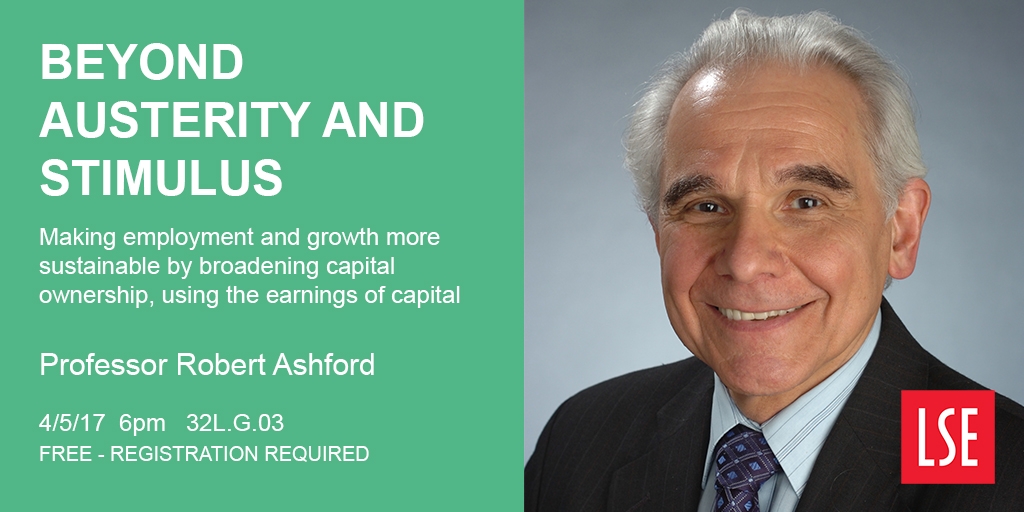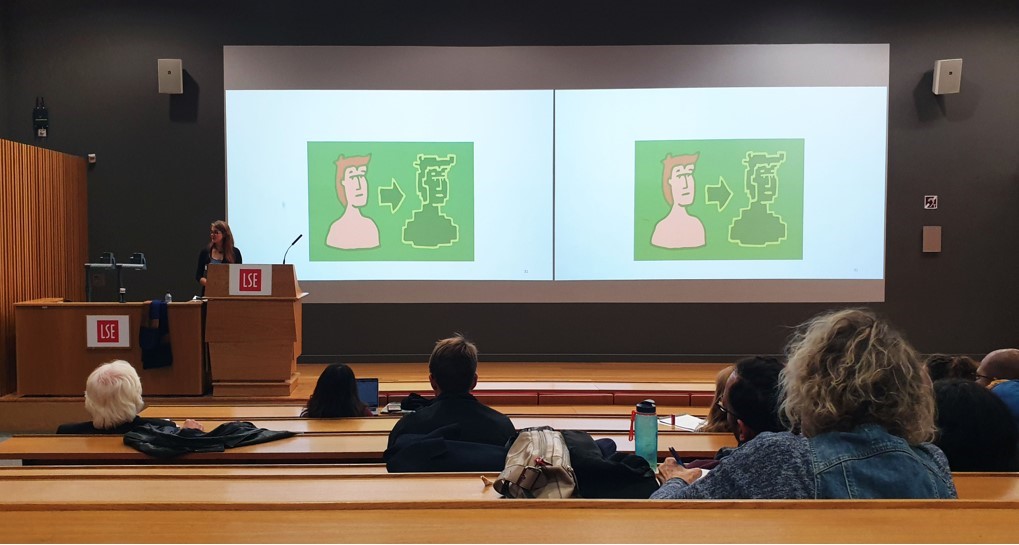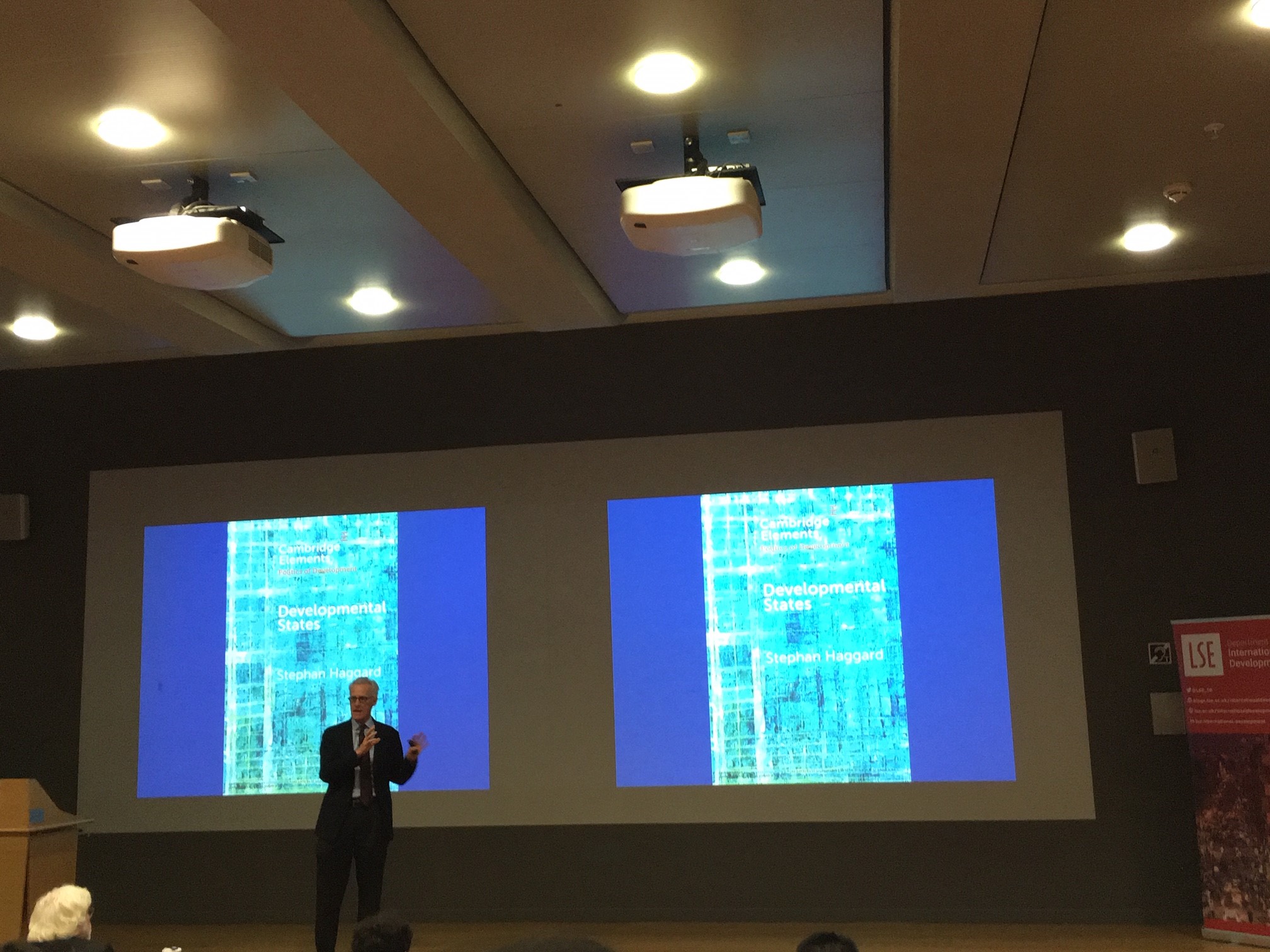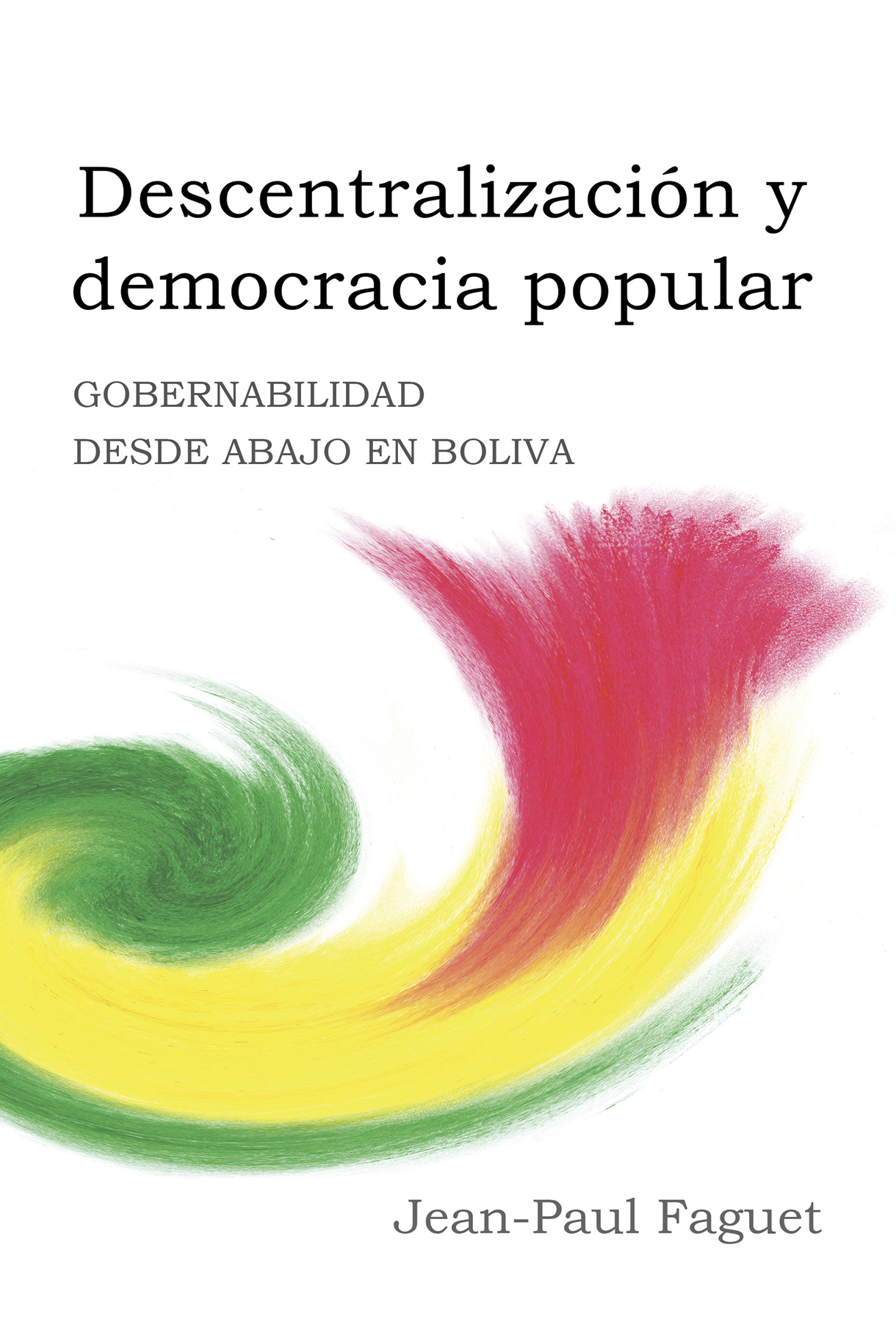Professor Robert Ashford, Distinguished Professor of Law at Syracuse University, tells us about his upcoming public talk in May at The London School of Economics, a new approach to making employment and growth more sustainable by broadening capital ownership, using the earnings of capital.
Thursday 4 May 2017, 6-7.30pm
Venue: 32L.G.03 Chair: Professor Robert Wade
Click here to reserve your space for the event
Since the Great Recession, the mainstream political economic debate has converged on two distinct strategies: Austerity and Stimulus. Advocates of both strategies (1) concede that the world’s major economies are not operating at full employment and (2) seek to promote (a) sustainable fuller employment of labor and capital and (b) enhanced earnings of poor and middle-class people.
Austerity advocates advance the laissez faire approach grounded in neoclassical allocational efficiency and neoclassical growth theories. Stimulus advocates base their strategy on various versions of Keynesian theory.
My presentation offers a different strategy based on a different theory of fuller employment and growth: The approach calls for broadening competitive market opportunities to acquire capital with the earnings of capital, which today accrue largely to a tiny fraction of the population. The theory holds that the prospect of more broadly distributed capital earnings in future years provides incentives to profitably employ more labor and capital in earlier years. It shares causal mechanisms with Keynesian theory, but should be seen as complementary to Keynesian theory because it operates in the long run as well as the short run and requires no redistribution through tax and transfer mechanisms.
The key institution is the professional trust fiduciary. Existing ones, such as Fidelity and Vanguard, assist mostly wealthier people to acquire capital with the earnings of capital, in rough proportion to their existing wealth. My presentation shows how they can also assist poorer people to acquire capital with the earnings of capital — but in proportions not limited to their existing wealth. The trusts borrow money and use it to acquire for them beneficial ownership of dividend-paying common shares issued to the trust fiduciaries by participating companies. The share acquisition loans are repaid with earnings of the capital acquired. The beneficial owners (primarily employees, customers, and neighbors of participating companies) are selected by the participating companies in conformity with legislated eligibility and non-discrimination rules. So the mechanism is based on techniques akin to conventional real estate mortgage financing, but modified to meet corporate purposes.
Predicted results include (1) enhanced earnings for poor and middle-class people, (2) enhanced corporate profits and growth, (3) reduced need for welfare dependence, government spending, borrowing, and taxes, and (4) enhanced sovereign creditworthiness. These predicted results, if realized, surpass expectations based on mainstream theories and will make both austerity and stimulus strategies more affordable and politically feasible.
Robert Ashford is Distinguished Professor of Law at Syracuse University, where he teaches Business Planning, Inclusive Capitalism, Public Corporations, Securities Regulation, among others. He holds a J.D. degree with Honors from Harvard Law School.
The views expressed in this post are those of the author and in no way reflect those of the International Development LSE blog or the London School of Economics and Political Science.






